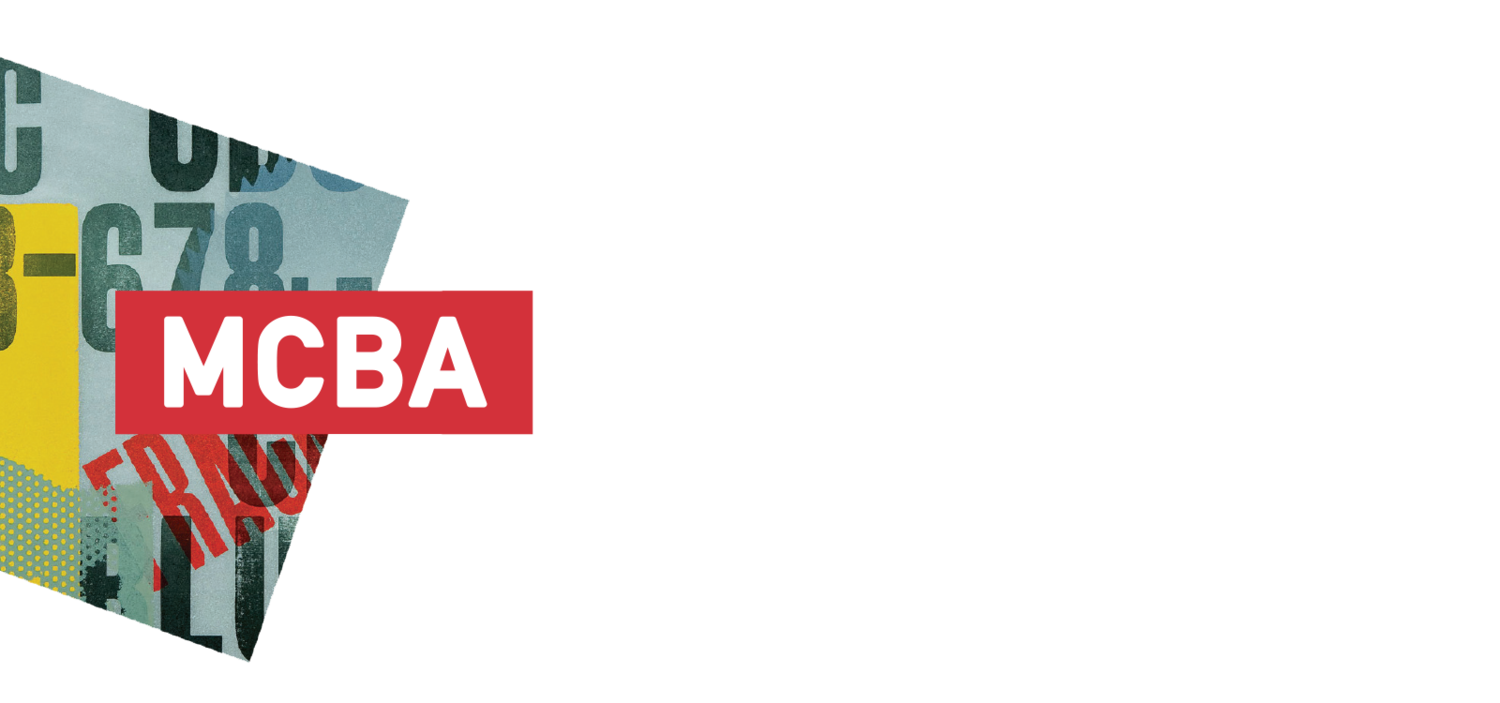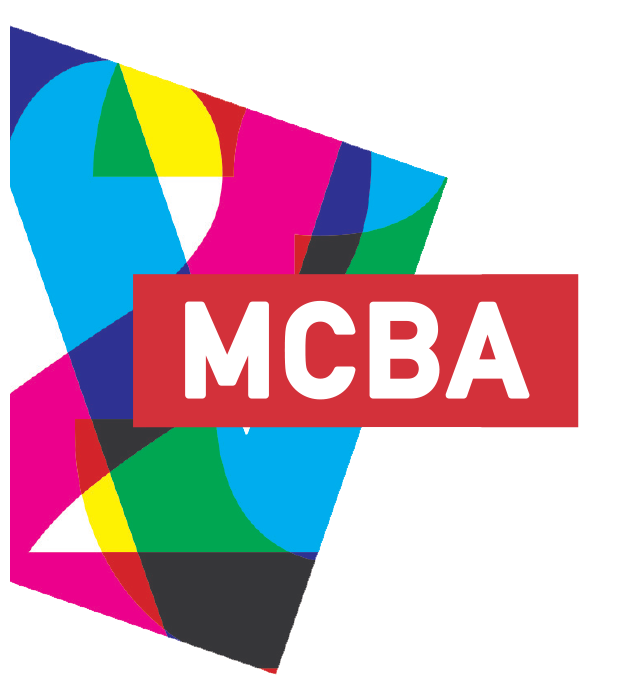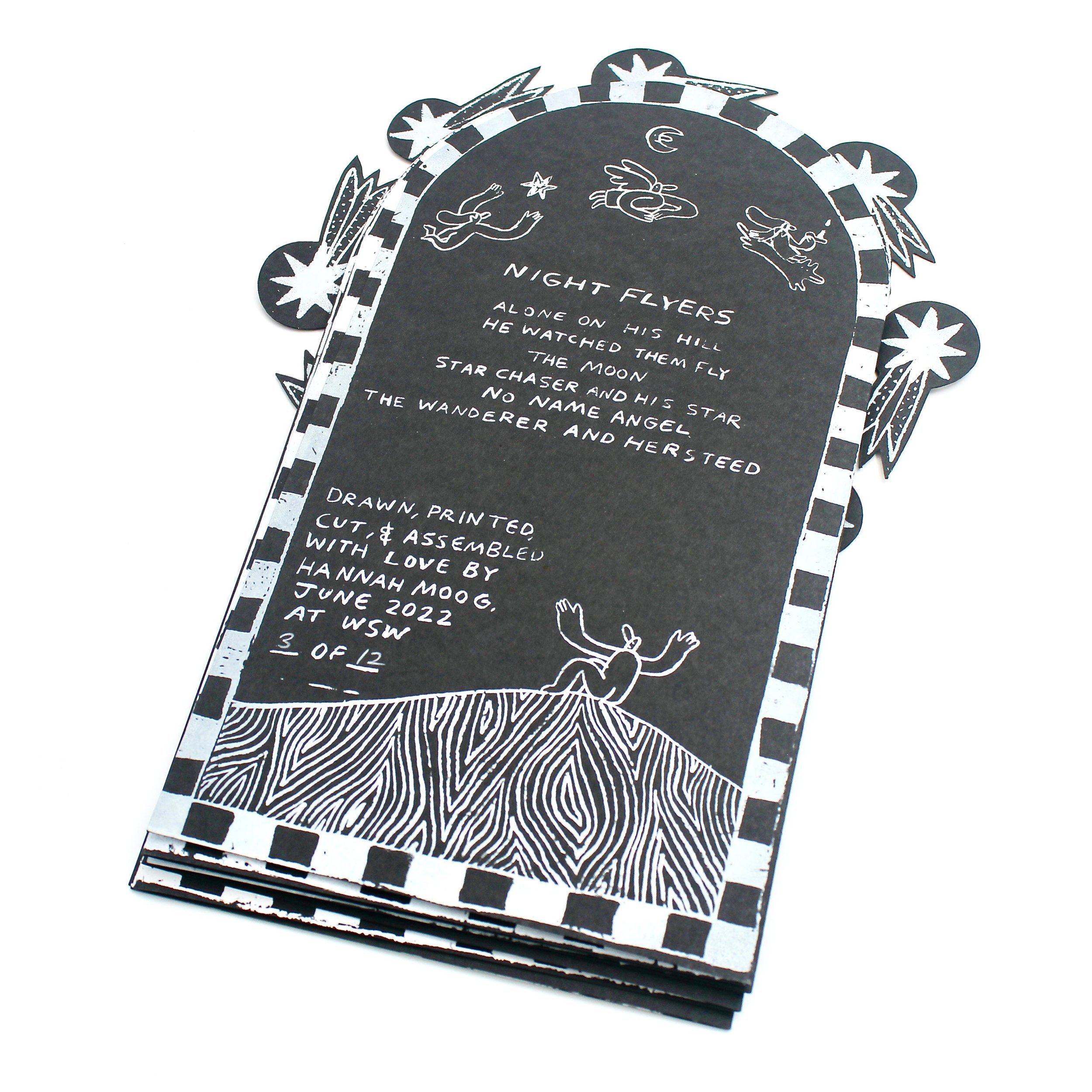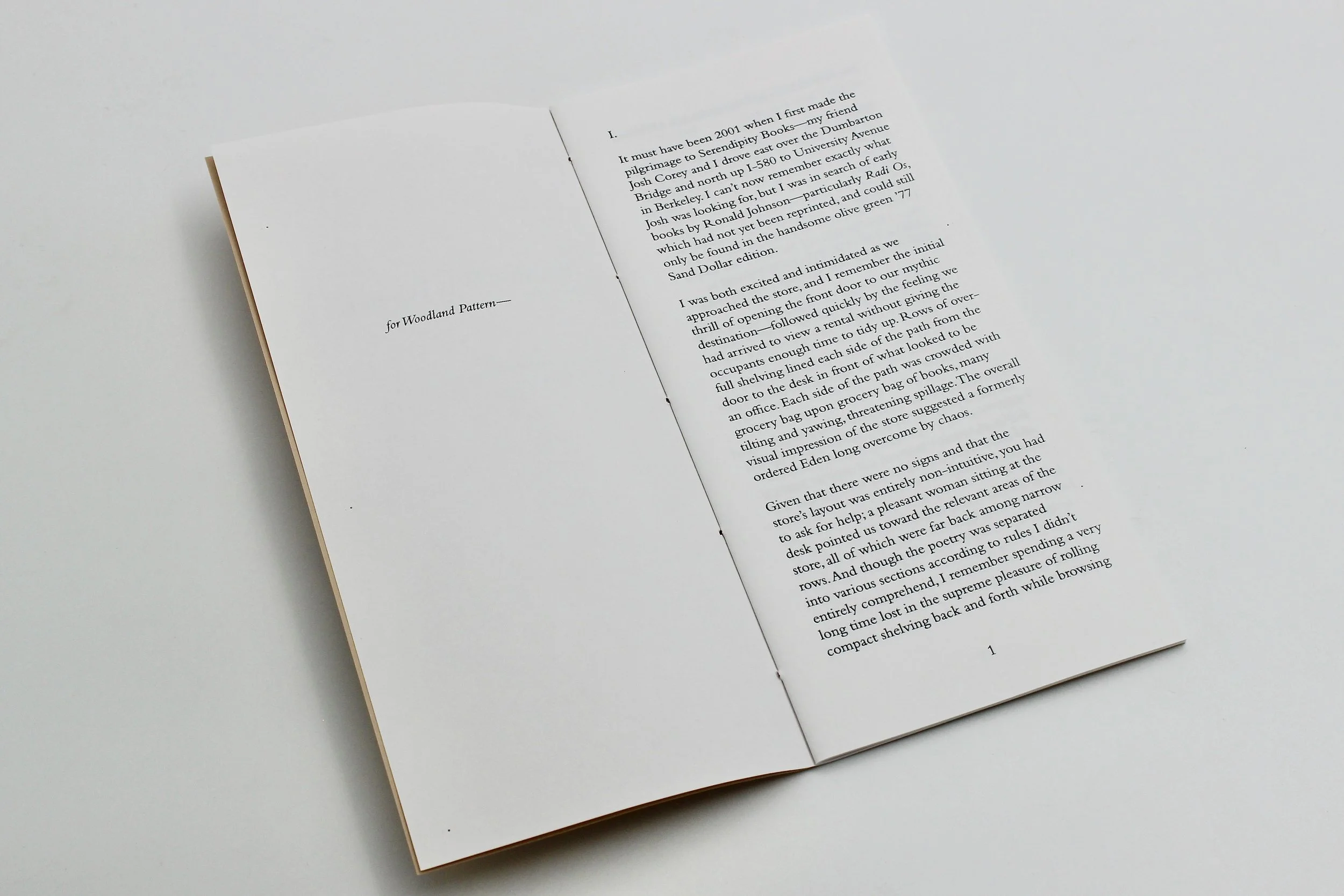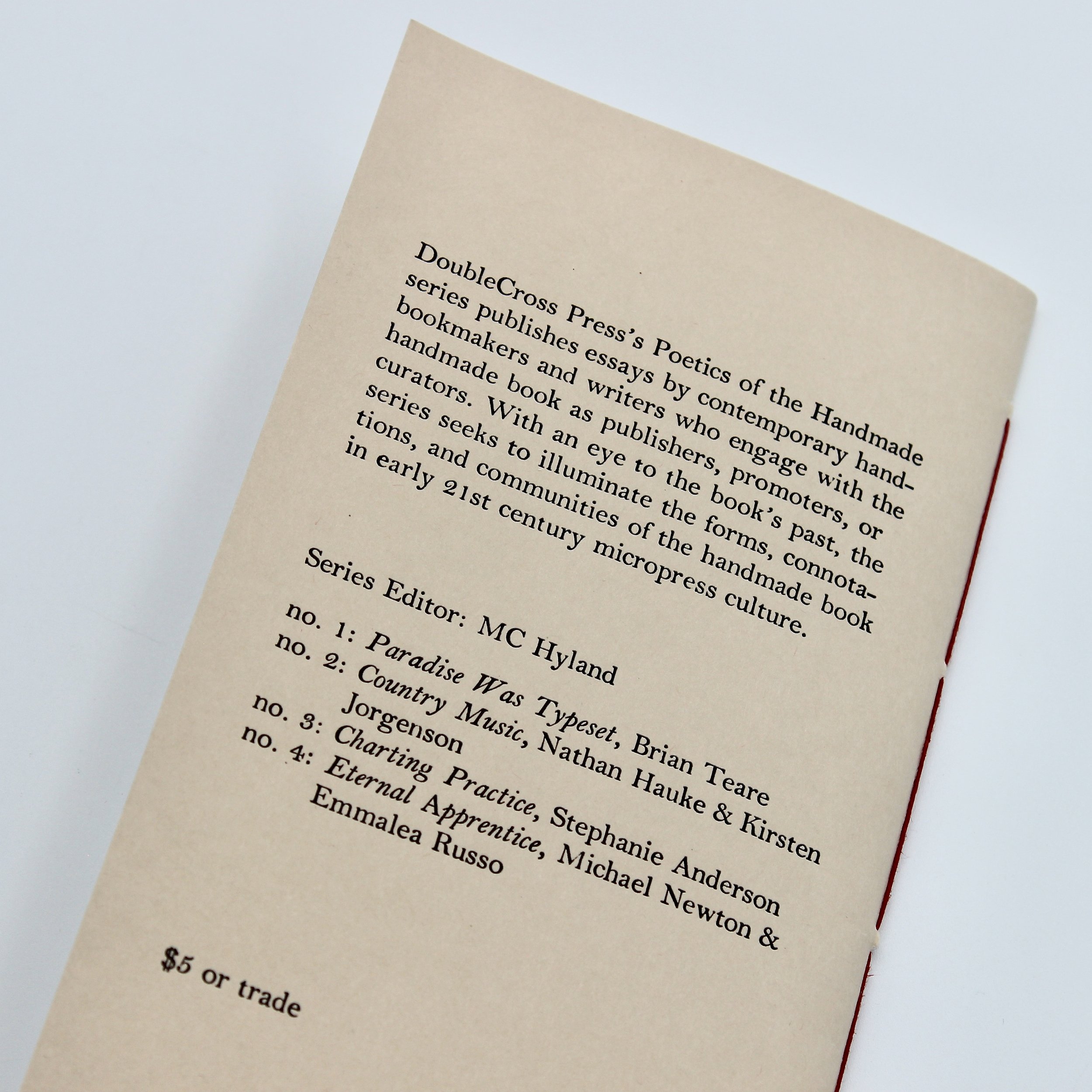The History of Work Artist's Book by Savannah Bustillo
This piece is a semi-finalist for the 2024 MCBA Prize, and will be included in the 2024 MCBA Prize Exhibition from August 17th - October 12th, 2024. Pieces purchased before the end of the exhibition will ship on October 18th, 2024.
Additionally, this piece is featured in the August 2024 issue of The Fore Edge, a quarterly newsletter from MCBA that highlights new artists’ books and zines for collections, universities, and libraries. If you are interested in receiving this newsletter, there is a sign up available here.
”This is a book about the history of work.
About the history of LEVERs.
WHEELs AND AXLEs.
INCLINED PLANEs,
WEDGEs, PULLEYs, and SCREWs.
These are the six simple machines.
They are the simplest mechanisms that use mechanical advantage or leverage, to help minimize the force needed to do work. This book tells the story of the six simple machines: First defined in classical Greek texts on mathematics by philosophers like Archimedes, they were then further elaborated on by Renaissance darlings like Galileo and Leonardo da Vinci during the neoclassical revival in Western Europe.They are linear, unidirectional, ideal - without friction or elasticity getting in the way. While understood as limited in their applications in modern machine theory, their usefulness remains in how they can be easily identified and used casually in the everyday by people trying to do work.
This book is a compound machine.
It is formed from the combination of simple machines contained in its pages, screen printed in layers of red and black ink on vellum, overlapping images of the simple machines with the words that tell their story. These vellum inserts fan out evenly throughout the pages of the book like notches in a gear, turning their way slowly and methodically around the central axis of the book for viewers to read. The main body is constructed from a slice of a recycled American popular science and technology magazine called “Popular Mechanics.” Founded at the turn of the 20th century, this magazine was meant to engage the typical American man in diy repairs, hacks, and gadgetry to properly maintain his home, car, and property while selling and showcasing tools and parts.
However, neither the six simple machines with their idealized leveraging of force, nor Daddy’s practical tips and common sense, are enough. There is more work to be done. To aid this unacknowledged work, the book contains four galvanized steel fender washers lightly taped onto pieces of printed vellum with instructions. Fender washers are designed to be load-bearing: to absorb shock and trauma from their environments. Viewers are given the instructions to peel off the washers as necessary, to hold them purposefully, concentrate, and to pass something they want to let go of to the washer, which can be left in a secret place.
This is a book about work. About failure. About the failure of work as we have previously acknowledged it and the need to make work work better. Work can be taught, passed down, practiced, and found. It exists as a link in a chain of simple machines that define work and by extension labor, power, and agency through specific operators and actors.
But there exist spaces and ways to appropriate these simple machines, these Popular Mechanics, these fender washers, the very concept of work. There are ways to make them our own. To work for us.” -Savannah Bustillo
2” x 13” x 13”
*Consignment item. Not eligible for 10% membership discount. All consignment purchases are final and non-refundable once shipped.
This piece is a semi-finalist for the 2024 MCBA Prize, and will be included in the 2024 MCBA Prize Exhibition from August 17th - October 12th, 2024. Pieces purchased before the end of the exhibition will ship on October 18th, 2024.
Additionally, this piece is featured in the August 2024 issue of The Fore Edge, a quarterly newsletter from MCBA that highlights new artists’ books and zines for collections, universities, and libraries. If you are interested in receiving this newsletter, there is a sign up available here.
”This is a book about the history of work.
About the history of LEVERs.
WHEELs AND AXLEs.
INCLINED PLANEs,
WEDGEs, PULLEYs, and SCREWs.
These are the six simple machines.
They are the simplest mechanisms that use mechanical advantage or leverage, to help minimize the force needed to do work. This book tells the story of the six simple machines: First defined in classical Greek texts on mathematics by philosophers like Archimedes, they were then further elaborated on by Renaissance darlings like Galileo and Leonardo da Vinci during the neoclassical revival in Western Europe.They are linear, unidirectional, ideal - without friction or elasticity getting in the way. While understood as limited in their applications in modern machine theory, their usefulness remains in how they can be easily identified and used casually in the everyday by people trying to do work.
This book is a compound machine.
It is formed from the combination of simple machines contained in its pages, screen printed in layers of red and black ink on vellum, overlapping images of the simple machines with the words that tell their story. These vellum inserts fan out evenly throughout the pages of the book like notches in a gear, turning their way slowly and methodically around the central axis of the book for viewers to read. The main body is constructed from a slice of a recycled American popular science and technology magazine called “Popular Mechanics.” Founded at the turn of the 20th century, this magazine was meant to engage the typical American man in diy repairs, hacks, and gadgetry to properly maintain his home, car, and property while selling and showcasing tools and parts.
However, neither the six simple machines with their idealized leveraging of force, nor Daddy’s practical tips and common sense, are enough. There is more work to be done. To aid this unacknowledged work, the book contains four galvanized steel fender washers lightly taped onto pieces of printed vellum with instructions. Fender washers are designed to be load-bearing: to absorb shock and trauma from their environments. Viewers are given the instructions to peel off the washers as necessary, to hold them purposefully, concentrate, and to pass something they want to let go of to the washer, which can be left in a secret place.
This is a book about work. About failure. About the failure of work as we have previously acknowledged it and the need to make work work better. Work can be taught, passed down, practiced, and found. It exists as a link in a chain of simple machines that define work and by extension labor, power, and agency through specific operators and actors.
But there exist spaces and ways to appropriate these simple machines, these Popular Mechanics, these fender washers, the very concept of work. There are ways to make them our own. To work for us.” -Savannah Bustillo
2” x 13” x 13”
*Consignment item. Not eligible for 10% membership discount. All consignment purchases are final and non-refundable once shipped.
This piece is a semi-finalist for the 2024 MCBA Prize, and will be included in the 2024 MCBA Prize Exhibition from August 17th - October 12th, 2024. Pieces purchased before the end of the exhibition will ship on October 18th, 2024.
Additionally, this piece is featured in the August 2024 issue of The Fore Edge, a quarterly newsletter from MCBA that highlights new artists’ books and zines for collections, universities, and libraries. If you are interested in receiving this newsletter, there is a sign up available here.
”This is a book about the history of work.
About the history of LEVERs.
WHEELs AND AXLEs.
INCLINED PLANEs,
WEDGEs, PULLEYs, and SCREWs.
These are the six simple machines.
They are the simplest mechanisms that use mechanical advantage or leverage, to help minimize the force needed to do work. This book tells the story of the six simple machines: First defined in classical Greek texts on mathematics by philosophers like Archimedes, they were then further elaborated on by Renaissance darlings like Galileo and Leonardo da Vinci during the neoclassical revival in Western Europe.They are linear, unidirectional, ideal - without friction or elasticity getting in the way. While understood as limited in their applications in modern machine theory, their usefulness remains in how they can be easily identified and used casually in the everyday by people trying to do work.
This book is a compound machine.
It is formed from the combination of simple machines contained in its pages, screen printed in layers of red and black ink on vellum, overlapping images of the simple machines with the words that tell their story. These vellum inserts fan out evenly throughout the pages of the book like notches in a gear, turning their way slowly and methodically around the central axis of the book for viewers to read. The main body is constructed from a slice of a recycled American popular science and technology magazine called “Popular Mechanics.” Founded at the turn of the 20th century, this magazine was meant to engage the typical American man in diy repairs, hacks, and gadgetry to properly maintain his home, car, and property while selling and showcasing tools and parts.
However, neither the six simple machines with their idealized leveraging of force, nor Daddy’s practical tips and common sense, are enough. There is more work to be done. To aid this unacknowledged work, the book contains four galvanized steel fender washers lightly taped onto pieces of printed vellum with instructions. Fender washers are designed to be load-bearing: to absorb shock and trauma from their environments. Viewers are given the instructions to peel off the washers as necessary, to hold them purposefully, concentrate, and to pass something they want to let go of to the washer, which can be left in a secret place.
This is a book about work. About failure. About the failure of work as we have previously acknowledged it and the need to make work work better. Work can be taught, passed down, practiced, and found. It exists as a link in a chain of simple machines that define work and by extension labor, power, and agency through specific operators and actors.
But there exist spaces and ways to appropriate these simple machines, these Popular Mechanics, these fender washers, the very concept of work. There are ways to make them our own. To work for us.” -Savannah Bustillo
2” x 13” x 13”
*Consignment item. Not eligible for 10% membership discount. All consignment purchases are final and non-refundable once shipped.
Savannah Bustillo (she/her) is a queer, second generation, Colombian-American printmaker, bookmaker, and papermaker from Albuquerque, New Mexico. She combines making and anthropological investigation to explore spaces in the margins – where identities not easily reconciled are placed. She received a BFA from Washington University in St. Louis, with a concentration in printmaking and a second major in anthropology, and is completing her MA/MFA at the University of Iowa in printmaking. Her work has been shown throughout the US, including the Hispanic Cultural Center in Albuquerque, NM, the Contemporary Art Museum in St. Louis, The Morgan Conservatory of Papermaking, Anderson Ranch Arts Center, Women’s Studio Workshop, Highpoint Center for Printmaking, the Minnesota Center for Book Arts, and at SGCI, where she received the 2024 SGCI Emerging Printmaker Award. Her work is held in over 30 collections throughout the US, including Harvard University, UC Berkeley, UCLA, VCU, RISD, Emory University, and the Walker Art Center.
SavannahBustillo.com | Instagram: @SavannahBustillo
